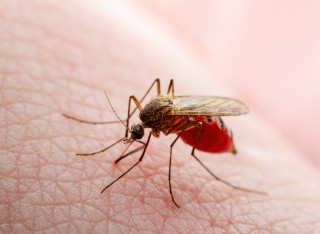
Professor Martin Foureaux Koppensteiner
About
Biography
I'm an applied microeconomist with an interest in crime, education, health and development. In my research I focus on the evaluation of public policies and aim to contribute to the understanding of the intended and unintended consequences of these policies. For the evaluation I use quasi-experimental methods and randomized-controlled trials.
I received my MSc in Economics from University College London and my PhD from Queen Mary University of London.
I currently work on two overarching projects using Brazilian administrative data. In the first project, the Understanding Crime Project, we provide new insights on the cost of crime using large linked individual datasets that allow us to look at the consequences of direct and indirect exposure on the health, education, and labour market outcomes of individuals. We also provide new insights on how institutions respond to crime and violence. In the second arm of the project, we work to establish the root causes of crime using uniquely suitable microdata that allow us to investigate individual pathways to entering criminal careers. Papers from this project have been published in the Journal of Labor Economics, American Economic Journal: Economics Policy and the Journal of Development Economics.
In a second overarching project, The Cost of Diseases Project, I provide new insights on the cost of disease, focusing currently on dengue fever in Brazil. The first paper from the project has just been published in the American Economic Journal: Applied Economics. We are working closely with policy makers in Brazil, the WHO and PAHO to use insights from our research to inform policy making on vector-borne diseases, including on the vaccine roll-out of newly available dengue vaccines, and vector control interventions.
I've held grants by the ESRC, Wellcome Trust, the British Academy, UKRI-GCRF, ESRC-DFID, the Ministry of Justice PCC, and the IDB.
I am a Research Fellow at IZA, an invited researcher at J-Pal, an adviser to the Evaluation and Trial Advise Panel (ETAP), serve as scientific advisor to the Home Office on the evaluation of domestic abuse policies and the Ministry for Housing, Communities and Local Government on their STEP Ukraine Evaluation. I also closely collaborate and advise a number of state government departments in Brazil, including health, education and public security.
Currently I am leading a consortium of researchers on the evaluation of the State Evaluation System in Brazil, supported through a British Academy Evidence-informed Policymaking Grant.
Please view my CV for more information.
News
ResearchResearch interests
Recent publications:
Maternal Dengue and Birth Outcomes (joint with Lívia Menezes). American Economic Journal: Applied Economics, vol. 16(2), pages 530-53, 2024.
We study the effect of maternal dengue infections on birth outcomes using linked administrative records from Brazil estimating maternal fixed-effect specifications. In contrast to previous studies, we find robust evidence for the negative effect of dengue infections on birth weight (BW). The effect is particularly pronounced at lower parts of the BW distribution, with an increase of 15%, 67%, and 133% for low, very low, and extremely low BW, respectively. We also document large increases in children’s hospitalizations and medical expenditures for up to three years after birth.
Public Services Access and Domestic Violence: Lessons from a Randomized Controlled Trial (joint with Jesse Matheson & Reka Plugor). American Economic Journal: Economic Policy, vol. 16(1), pages 292-324, 2024.
Abstract: This paper studies the effect of improving access to support services for victims of domestic violence. For this purpose, we conducted a randomized controlled trial of an intervention designed to assist victims in accessing non-police services. We built a unique dataset from a victim survey and administrative records. The intervention led to a 19% decrease in the provision of statements by victims to police, but no significant change in criminal justice outcomes against perpetrators. We argue that the treatment response in statements came from victims for whom a statement was relatively less effective for pursuing criminal sanctions. For example, relative to the control group, statements provided by the treatment group were 84% less likely to be withdrawn. We also find that over a two-year period, reported domestic violence outcomes do not differ significantly between the treatment and control group. We provide suggestive evidence for the interpretation of these results.
Financial Inclusion, Shocks and Welfare: Evidence from the Expansion of Mobile Money in Tanzania (joint with Olukorede Abiona). Journal of Human Resources, 57(2):435-464, 2022.
Abstract: In this paper, we estimate the effect of mobile money adoption on consumption smoothing, poverty and human capital investments in Tanzania. We exploit the rapid expansion of the mobile money agent network between 2010 and 2013 and instrument for the household adoption of mobile money by using changes in the distance and cost to the nearest mobile money agent. We test for consumption smoothing by focusing on idiosyncratic shocks to households from variation in rainfall across Tanzania. We find evidence for consumption smoothing during periods of negative shocks for the poorest households that have adopted mobile money. We also show that mobile money prevents these households from sliding into transient poverty. In addition, adopter households are able to maintain investments in human capital, namely school attendance and preventive health expenditure, during periods of household shocks. Additional results on time use of children and labour force participation complement the findings on the important role of mobile money for the intergenerational transmission of poverty.
Violence and Human Capital Investments (joint with Livia Menezes). Journal of Labor Economics, 39(3):787-823, 2021.
Abstract: Homicides are undoubtedly the crudest outcome of violence and crime. They may instil fear with observers and may lead to behavioural adjustments. We use a number of large administrative Brazilian datasets to estimate the causal effect of exposure to homicides in the public way on
schooling outcomes. Within-school estimates show that violence in the surroundings of schools, at the residence of students, and on the walking path from residence to school has a negative effect on a number of measures of school achievement such as test scores, repetition, dropout and school progression. We also find that school attendance suffers following a homicide in the school surroundings. Exceptionally rich data allow us to investigate heterogeneous effects and explore the channels underlying these effects.
Secondary Schools and Teenage Childbearing: Evidence from the school expansion in Brazilian municipalities (joint with Jesse Matheson). World Bank Economic Review, 35(4):1019–1037, 2021.
This article investigates the effect of increasing secondary education opportunities on teenage fertility in Brazil. We construct a novel dataset to exploit variation from a 57% increase in secondary schools across 4,884 Brazilian municipalities between 1997 and 2009. We find that an increase of one school per 100 females reduces a cohort’s teenage birthrate by between 0.250 and 0.563 births per 100, or a reduction of one birth for roughly every 50 to 100 students who enroll in secondary education.
Working papers:
Victimizaton and Birth Outcomes (joint with Livia Menezes)
We estimate the causal effect of individual criminal victimisation in robbery and theft on birth outcomes using a unique dataset from Brazil combining information on the universe of victims of crime with vital statistics data. We find that victimisation during pregnancy reduces birthweight by about 16 grams - 3 percent of a standard deviation in birthweight - and increases the likelihood of low and extremely low birthweight by about 8.5 and 30 percent, respectively, compared to the baseline. The results are robust to the inclusion of place of residence, maternal and time fixed effects and to the inclusion of a very large array of mother and pregnancy characteristics. We also show that victimisation leads to behavioural adjustments of mothers as we observe a reduction in the number of prenatal visits. Effects are stronger for individuals of lower socio-economic background, indicating that victimisation might contribute to the intergenerational transmission of poverty.
Economics Observatory summary.
The Effect of Dengue Fever on Schooling Outcomes (joint with Juliana Carneiro and Livia Menezes)
In this paper, we estimate the causal effect of transitory individual-level health shocks on schooling outcomes in Brazil. We focus on dengue fever, which, despite putting half of the world’s population at risk, has received relatively little attention, possibly due to its low mortality. We link individual register data on dengue infections with detailed individual records from the Brazilian school census and use a fixed effects estimation strategy to estimate the effect of dengue infections on grade retention and dropout. We find that dengue infections during the school year have a substantial negative effect on measures of student success, with an increase in grade retention of 3.5 percent and an increase in dropout of 4.6 percent. The results are important for vector control programs and for the adoption and targeting of novel dengue vaccines.
The Impact of Household Shocks on Domestic Violence: Evidence from Tanzania (joint with Olukorede Abiona). R&R.
Abstract: In this paper, we study the effect of household shocks on the incidence of domestic violence using household survey microdata from Tanzania. We use idiosyncratic variation in rainfall to proxy for shocks on household income of rural households. We find that droughts lead to a considerable increase of domestic violence in the households. A one standard deviation negative rainfall shock from the long-term mean increases the incidence by about 11.3 per cent compared to the baseline. We make use of the rich information from the household survey to investigate the underlying pathways.
Maternal Displacements during Pregnancy and the Health of Newborns (joint with Stefano Cellini and Lívia Menezes). Submitted.
In this paper, we estimate the effect of maternal displacements during pregnancy on birth outcomes by leveraging population-level administrative data from Brazil on formal employment linked to birth records. We find that involuntary job separation of pregnant single mothers leads to a decrease in birth weight (BW) by around 28 grams and an increase in the incidence of low BW by 10.5%. In contrast, we find a significant positive effect on the mean BW and a decrease in the incidence of low BW for mothers in a marriage or stable union. We document more pronounced negative effects for single mothers with lower earnings and no effect for mothers in the highest income quartile, suggesting a mitigating role of self-insurance from savings. Exploiting variation from unemployment benefits eligibility, we also provide evidence on the mitigating role of formal unemployment insurance using a Regression Discontinuity design exploiting the cutoff from the unemployment insurance eligibility rule.
Research interests
Recent publications:
Maternal Dengue and Birth Outcomes (joint with Lívia Menezes). American Economic Journal: Applied Economics, vol. 16(2), pages 530-53, 2024.
We study the effect of maternal dengue infections on birth outcomes using linked administrative records from Brazil estimating maternal fixed-effect specifications. In contrast to previous studies, we find robust evidence for the negative effect of dengue infections on birth weight (BW). The effect is particularly pronounced at lower parts of the BW distribution, with an increase of 15%, 67%, and 133% for low, very low, and extremely low BW, respectively. We also document large increases in children’s hospitalizations and medical expenditures for up to three years after birth.
Public Services Access and Domestic Violence: Lessons from a Randomized Controlled Trial (joint with Jesse Matheson & Reka Plugor). American Economic Journal: Economic Policy, vol. 16(1), pages 292-324, 2024.
Abstract: This paper studies the effect of improving access to support services for victims of domestic violence. For this purpose, we conducted a randomized controlled trial of an intervention designed to assist victims in accessing non-police services. We built a unique dataset from a victim survey and administrative records. The intervention led to a 19% decrease in the provision of statements by victims to police, but no significant change in criminal justice outcomes against perpetrators. We argue that the treatment response in statements came from victims for whom a statement was relatively less effective for pursuing criminal sanctions. For example, relative to the control group, statements provided by the treatment group were 84% less likely to be withdrawn. We also find that over a two-year period, reported domestic violence outcomes do not differ significantly between the treatment and control group. We provide suggestive evidence for the interpretation of these results.
Financial Inclusion, Shocks and Welfare: Evidence from the Expansion of Mobile Money in Tanzania (joint with Olukorede Abiona). Journal of Human Resources, 57(2):435-464, 2022.
Abstract: In this paper, we estimate the effect of mobile money adoption on consumption smoothing, poverty and human capital investments in Tanzania. We exploit the rapid expansion of the mobile money agent network between 2010 and 2013 and instrument for the household adoption of mobile money by using changes in the distance and cost to the nearest mobile money agent. We test for consumption smoothing by focusing on idiosyncratic shocks to households from variation in rainfall across Tanzania. We find evidence for consumption smoothing during periods of negative shocks for the poorest households that have adopted mobile money. We also show that mobile money prevents these households from sliding into transient poverty. In addition, adopter households are able to maintain investments in human capital, namely school attendance and preventive health expenditure, during periods of household shocks. Additional results on time use of children and labour force participation complement the findings on the important role of mobile money for the intergenerational transmission of poverty.
Violence and Human Capital Investments (joint with Livia Menezes). Journal of Labor Economics, 39(3):787-823, 2021.
Abstract: Homicides are undoubtedly the crudest outcome of violence and crime. They may instil fear with observers and may lead to behavioural adjustments. We use a number of large administrative Brazilian datasets to estimate the causal effect of exposure to homicides in the public way on
schooling outcomes. Within-school estimates show that violence in the surroundings of schools, at the residence of students, and on the walking path from residence to school has a negative effect on a number of measures of school achievement such as test scores, repetition, dropout and school progression. We also find that school attendance suffers following a homicide in the school surroundings. Exceptionally rich data allow us to investigate heterogeneous effects and explore the channels underlying these effects.
Secondary Schools and Teenage Childbearing: Evidence from the school expansion in Brazilian municipalities (joint with Jesse Matheson). World Bank Economic Review, 35(4):1019–1037, 2021.
This article investigates the effect of increasing secondary education opportunities on teenage fertility in Brazil. We construct a novel dataset to exploit variation from a 57% increase in secondary schools across 4,884 Brazilian municipalities between 1997 and 2009. We find that an increase of one school per 100 females reduces a cohort’s teenage birthrate by between 0.250 and 0.563 births per 100, or a reduction of one birth for roughly every 50 to 100 students who enroll in secondary education.
Working papers:
Victimizaton and Birth Outcomes (joint with Livia Menezes)
We estimate the causal effect of individual criminal victimisation in robbery and theft on birth outcomes using a unique dataset from Brazil combining information on the universe of victims of crime with vital statistics data. We find that victimisation during pregnancy reduces birthweight by about 16 grams - 3 percent of a standard deviation in birthweight - and increases the likelihood of low and extremely low birthweight by about 8.5 and 30 percent, respectively, compared to the baseline. The results are robust to the inclusion of place of residence, maternal and time fixed effects and to the inclusion of a very large array of mother and pregnancy characteristics. We also show that victimisation leads to behavioural adjustments of mothers as we observe a reduction in the number of prenatal visits. Effects are stronger for individuals of lower socio-economic background, indicating that victimisation might contribute to the intergenerational transmission of poverty.
Economics Observatory summary.
The Effect of Dengue Fever on Schooling Outcomes (joint with Juliana Carneiro and Livia Menezes)
In this paper, we estimate the causal effect of transitory individual-level health shocks on schooling outcomes in Brazil. We focus on dengue fever, which, despite putting half of the world’s population at risk, has received relatively little attention, possibly due to its low mortality. We link individual register data on dengue infections with detailed individual records from the Brazilian school census and use a fixed effects estimation strategy to estimate the effect of dengue infections on grade retention and dropout. We find that dengue infections during the school year have a substantial negative effect on measures of student success, with an increase in grade retention of 3.5 percent and an increase in dropout of 4.6 percent. The results are important for vector control programs and for the adoption and targeting of novel dengue vaccines.
The Impact of Household Shocks on Domestic Violence: Evidence from Tanzania (joint with Olukorede Abiona). R&R.
Abstract: In this paper, we study the effect of household shocks on the incidence of domestic violence using household survey microdata from Tanzania. We use idiosyncratic variation in rainfall to proxy for shocks on household income of rural households. We find that droughts lead to a considerable increase of domestic violence in the households. A one standard deviation negative rainfall shock from the long-term mean increases the incidence by about 11.3 per cent compared to the baseline. We make use of the rich information from the household survey to investigate the underlying pathways.
Maternal Displacements during Pregnancy and the Health of Newborns (joint with Stefano Cellini and Lívia Menezes). Submitted.
In this paper, we estimate the effect of maternal displacements during pregnancy on birth outcomes by leveraging population-level administrative data from Brazil on formal employment linked to birth records. We find that involuntary job separation of pregnant single mothers leads to a decrease in birth weight (BW) by around 28 grams and an increase in the incidence of low BW by 10.5%. In contrast, we find a significant positive effect on the mean BW and a decrease in the incidence of low BW for mothers in a marriage or stable union. We document more pronounced negative effects for single mothers with lower earnings and no effect for mothers in the highest income quartile, suggesting a mitigating role of self-insurance from savings. Exploiting variation from unemployment benefits eligibility, we also provide evidence on the mitigating role of formal unemployment insurance using a Regression Discontinuity design exploiting the cutoff from the unemployment insurance eligibility rule.
Supervision
Postgraduate research supervision
Current students:
Catherine Ojo, expected 2026
Liang Ye, expected 2028
Previous students and initial placement:
Stefano Cellini, NIDI, postdoc
Francisco Mendes, Bristol/Aston, postdoc
Livia Menezes, University of Birmingham, Assistant professor
Taya Kamwanja, University of Bristol, Teaching Fellow
Olukorede Abiona, University of Technology Sydney, Post-doc
Nikitha Rohith, University of Coventry, Lecturer
Tewodros Gebrewolde, International Growth Centre, LSE, Senior Economist
I'm interested in supervising students in applied microeconometrics in the areas of health, education, crime, and labor more generally.
Teaching
ECO3046: Public Economics (undergraduate programme)
ECOM078: Programme and Policy Evaluation (graduate programme)
Previous:
ECOM054: Applied Policy Analysis (graduate programme)
Sustainable development goals
My research interests are related to the following:
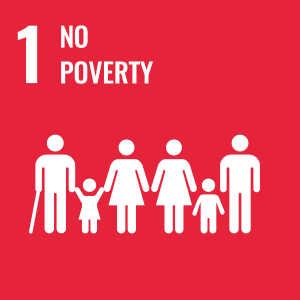
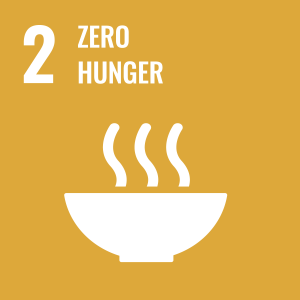

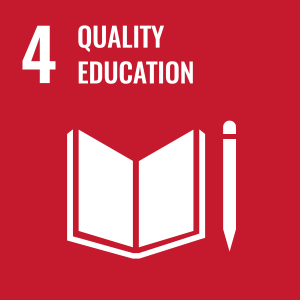


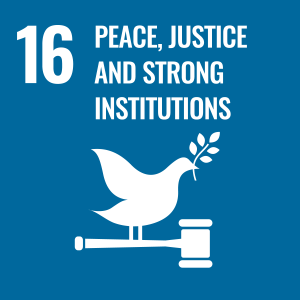
Publications
(pp. 530–53)
We study the effect of maternal dengue infections on birth outcomes using linked administrative records from Brazil estimating maternal fixed-effect specifications. In contrast to previous studies, we find robust evidence for the negative effect of dengue infections on birth weight (BW). The effect is particularly pronounced at lower parts of the BW distribution, with an increase of 15%, 67%, and 133% for low, very low, and extremely low BW, respectively. We also document large increases in children’s hospitalizations and medical expenditures for up to three years after birth.
This paper studies the effect of improving access to support services for victims of domestic violence. For this purpose, we conducted a randomized controlled trial of an intervention designed to assist victims in accessing non-police services. We built a unique dataset from a victim survey and administrative records. The intervention led to a 19% decrease in the provision of statements by victims to police, but no significant change in criminal justice outcomes against perpetrators. We argue that the treatment response in statements came from victims for whom a statement was relatively less effective for pursuing criminal sanctions. For example, relative to the control group, statements provided by the treatment group were 84% less likely to be withdrawn. We also find that over a two-year period, reported domestic violence outcomes do not differ significantly between the treatment and control group. We provide suggestive evidence for the interpretation of these results.
In this paper, we combine extremely granular information on the location and timing of homicides with a number of large administrative educational datasets from Brazil, to estimate the effect of exposure to homicides around schools, students' residence, and on their way to school. We show that violence has a detrimental effect on school attendance, on standardised test scores and increases dropout rates of students substantially. We use exceptionally rich information from student- and parent-background questionnaires to investigate the effect of violence on the aspirations and attitudes towards education. We find that boys systematically report lower educational aspiration towards education.
We estimate the effect of mobile money adoption on consumption smoothing, poverty, and human capital investments in Tanzania. We exploit the rapid expansion of the mobile money agent network between 2010 and 2012 and use this together with idiosyncratic shocks from variation in rainfall over time and across space in a difference-in-difference framework. We find that adopter households are able to smooth consumption during periods of shocks and maintain their investments in human capital. Results on time use of children and labor force participation complement the findings on the important role of mobile money for the intergenerational transmission of poverty.
Students in Brazil are typically assigned to classes based on their age ranking in their school grade. I exploit this rule to estimate the effects on maths achievement of being in a class with older peers for students in fifth grade of primary school. Because grade repetition is widespread in Brazil, the distribution of age is skewed to the right and hence age heterogeneity is typically higher in older classes. I provide evidence that heterogeneity in age is the driving factor behind the large negative estimated effect of being in an older class. Information on teaching practices and student behaviour sheds light on how class heterogeneity harms learning.
This paper uses microdata from Brazilian vital statistics on births and deaths between 2000 and 2010 to estimate the impact of in-utero exposure to local violence – measured by homicide rates – on birth outcomes. The estimates show that exposure to violence during the first trimester of pregnancy leads to a small but precisely estimated increase in the risk of low birthweight and prematurity. Effects are found both in small municipalities, where homicides are rare, and in large municipalities, where violence is endemic, and are particularly pronounced among children of poorly educated mothers, implying that violence compounds the disadvantage that these children already suffer as a result of their households' lower socioeconomic status.
his paper examines the effect of automatic grade promotion on academic achievement in 1993 public primary schools in Brazil. A difference-in-differences approach that exploits variation over time and across schools in the grade promotion regime allows the identification of the treatment effect of automatic promotion. I find a negative and significant effect of about 7% of a standard deviation on math test scores. I provide evidence in support of the interpretation of the estimates as a disincentive effect of automatic promotion. The findings contribute to the understanding of retention policies by focussing on the ex-ante effect of repetition and are important for more complete cost–benefit considerations of grade retention.
This article investigates the effect of increasing secondary education opportunities on teenage fertility in Brazil. We construct a novel dataset to exploit variation from a 57% increase in secondary schools across 4,884 Brazilian municipalities between 1997 and 2009. We find that an increase of one school per 100 females reduces a cohort’s teenage birthrate by between 0.250 and 0.563 births per 100, or a reduction of one birth for roughly every 50 to 100 students who enroll in secondary education.
